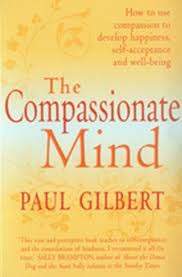CHA STUDENT BLOG: This month’s blog is written by Chang’s Hapkido Academy student Michi Lutz. When she’s not at Hapkido, Michi is a psychologist working in the NHS and currently completing her doctoral research in counselling psychology.
The Compassionate mind
 At work I often leaf through this wise and accessible book. It is a great resource and self help book- I recommend it as reading to clients experiencing psychological difficulties like depression or anxiety. But I also believe that building compassion is important for lots of people, regardless of whether they have psychological difficulties or are simply interested in improving their lives and learning more about themselves.
At work I often leaf through this wise and accessible book. It is a great resource and self help book- I recommend it as reading to clients experiencing psychological difficulties like depression or anxiety. But I also believe that building compassion is important for lots of people, regardless of whether they have psychological difficulties or are simply interested in improving their lives and learning more about themselves.
Compassion is kindness to oneself and others. Compassion and self-compassion are interlinked: How we relate to ourselves will have an impact on how we relate to others, and how we relate to others can impact on how we relate to ourselves. I often think that compassion is an underrated quality in modern society. Many people seem to see kindness and compassion as a weaknesses, and might associate these qualities with being a bit of a push-over; some might have similarly negative reactions to the idea of kindness to oneself, for example, thinking that it encourages an attitude of ‘taking it easy’ or ‘letting oneself off the hook’. Gilbert argues that compassion has very little to do with any of these things, but is actually an important survival quality, improving our well-being and resilience. The book is broadly divided into two chapters. Chapter I (‘The science behind compassion’) uses evolutionary theory and neuroscience to contextualise and explain the importance of compassion. Chapter II suggests exercises and strategies for self-directed practice in becoming more compassionate.
The concept of compassion has its roots in Buddhist thought and as such is compatible with Eastern philosophical traditions on which martial arts like hapkido draw. In hapkido we also build compassion in various ways. For example, research from coaching and sports psychology tells us that the class environment or social context in which an activity happens can have an enormous impact on how well people learn and develop. People training in task goal-oriented environments (where the focus is on collaboration, acquiring skills and improving oneself) tend to learn better and develop a more rounded character than those training in ego goal-oriented environments (where the focus is on competition and comparison with others). In contrast, ego goal-oriented environments often lead to participants becoming aggressive and fearful. (see a previous blog)
This relates to the importance of compassion: Compassion is built on a sense of feeling safe. As Gilbert explains, safety (the absence of danger) and ‘safeness’, or feeling safe, are not the same: often ‘safeness’ happens in the context of an objectively challenging or even dangerous situation. But by feeling safe we can increase our courage and willingness to confront challenge. A few examples from my own hapkido practice where feeling safe (or at least ‘feeling safer’) has been important, come to mind:
- committing to a fall I find scary (there are quite a few!)
- when practising skills or sparring with others, trusting that my opponent has good intentions, will know his or her limits and not use excessive force
- trusting the class and my opponents that it is ok to make a mistake; knowing that I can just go ahead and give it a go, at the risk of looking stupid, because this is how we learn
- learning to be ok with myself when making a mistake or not getting something right; giving myself credit for my efforts and remembering that ‘excellence is a habit’
I believe that in a class like ours the spirit of tolerance, goodwill and generosity filters through and creates an environment that allows everybody to grow and develop, with regard to our physical skills and with regard to our mental attitudes. For many the idea of compassion in martial arts may seem counter-intuitive. However, compassion allows us to learn, to move forward, and to take control of situations. Our Master, Tammy Parlour, sometimes talks about the most important quality needed for practising hapkido being love. Compassion is kindness to oneself and others- I think that being kind to ourselves and others is an expression of love, and that it can help us to love hapkido even more.
